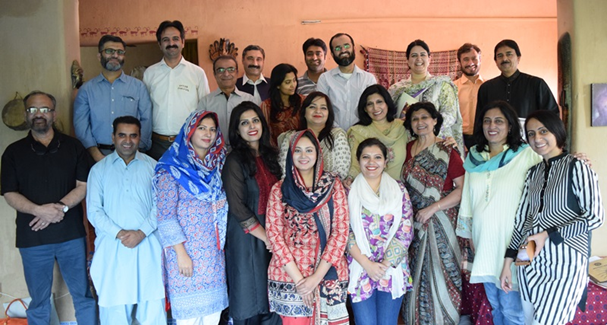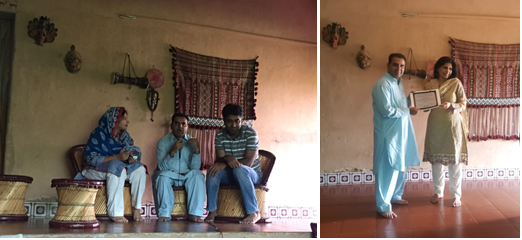Training on “Protection Against Harassment of Women at Workplace, Act-2010” (13-15 Oct 2017 at Islamabad)
Go Back

3-day residential training was organized by Mehergarh – A Centre for Learning at outskirts of Islamabad from 13-15 October 2017 for creating awareness about sexual harassment of women at workplace and implementation of the subject law in the organizations working in Pakistan. Mr. Ghulam Abbas, Assistant Director (Admin & Programmes) was nominated to attend the training on behalf of ECOSF. A total number of 22 participants from all over Pakistan belonging to various national and international departments/organizations attended the training. It is pertinent to mention that it is the first time in the history of Pakistan that sexual harassment has been defined in Pakistani Law. Up to now sexual harassment was not considered a crime but only a social evil that was justified by blaming women for causing it. No law specifically covered harassment at the workplace.

In early 2010, Pakistan Government passed a Law called ‘Protection Against Harassment of Women at Workplace Act 2010. The intention of the Law is to provide an opportunity to all organizations, public, private and civil society, to develop a self regulatory mechanism whereby organizations could handle the problems related to sexual harassment internally. Base on the law, a Codeof Conduct has been prepared for the organizations/institutes and adoption of this Code has become mandatory for all organizations. It requires management to take charge of the transformation of their institutional culture and make it dignified for both women and men.
During the training, the aspect and definition of sexual harassment was discussed and defined that “any unwelcome sexual advance, request for sexual favors or other verbal or written communication or physical conduct of a sexual nature or sexually demeaning attitudes, causing interference with work performance or creating an intimidating, hostile or offensive work environment, or the attempt to punish the complainant for refusal to comply to such a request or is made a condition for employment is considered sexual harassment”.
An open discussion was carried out by the participants on the topic. Following key points were surfaced:
- Formulation of three members Inquiry Committee (at least one member should be female) in the organizations/institutes as per the Law.
- Conducting the awareness programmes among the employees about their rights and the Law.
- Implementation of the Law in the organizations/institutes
- Making sure the dignity of both the parties (complainant and accused) while investigating the matter/complaint.
- Process of the investigation and implementation.
Different groups were formulated to devise the strategy to handle the complaints through the defined procedure. Every group gave their presentation through a play/situation.

At the end, the certificates were distributed among the participants.
Following is recommended:
- Conduct of awareness sessions about sexual harassment and the Law among the employees.
- Formulation of the Inquiry Committee.
- Discrete monitoring of the atmosphere in the organization to avoid and curb any incident at early stages.
- Any other relevant step.